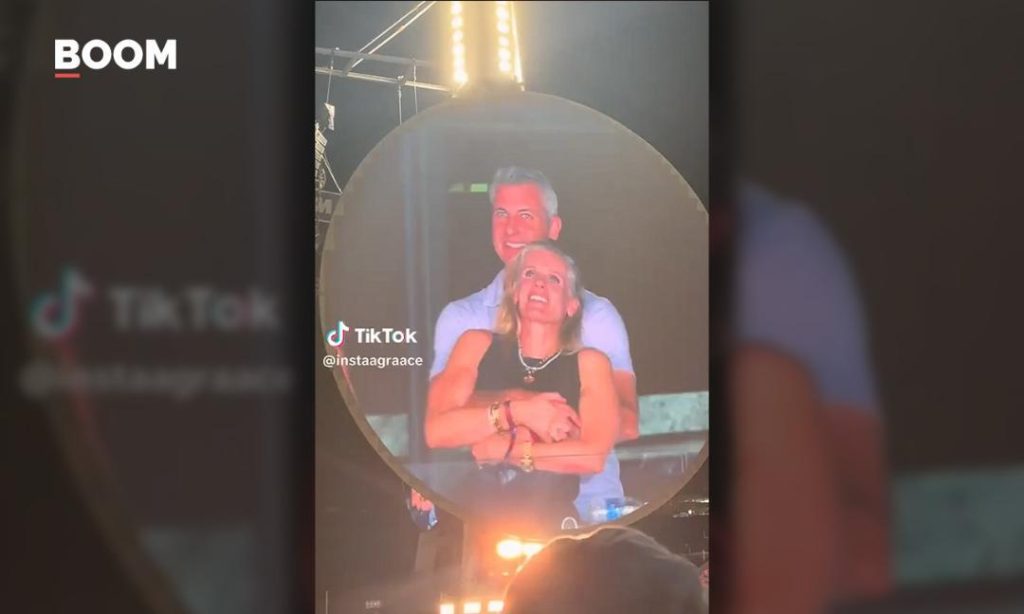
Did Astronomer CEO Andy Byron Issue Apology After Coldplay Video?
In recent times, the internet has been abuzz with a viral video of Andy Byron, CEO of tech company Astronomer, ducking while cuddling a woman at a Coldplay concert. The video has sparked widespread outrage, with many calling for his resignation or further action. However, in the midst of the controversy, two fake apology statements have been attributed to Byron, claiming that he was sorry for his actions. But, did he really issue an apology? In this blog post, we’ll delve into the truth behind the fake apology statements and what really happened.
The Video Goes Viral
The video, which has been viewed millions of times, shows Byron and a woman embracing and cuddling during a Coldplay concert. However, just as things seem romantic, Byron ducks away, seemingly trying to avoid a kiss or a romantic gesture. The video has sparked a heated debate, with some calling it a “kiss cam” moment gone wrong, while others have slammed Byron for his behavior.
The Fake Apologies
As the video continued to make waves online, two fake apology statements began circulating, attributed to Byron himself. The statements claimed that he was deeply sorry for his actions and had realized the gravity of his mistake. However, a closer look at the statements reveals that they are likely to be fake.
The first statement, allegedly issued by Byron, claimed that he was “deeply sorry” for his actions and that he had “let his emotions get the better of him.” The statement went on to say that he had “learned a valuable lesson” and would “do better in the future.”
The second statement, also attributed to Byron, took a more conciliatory tone. It claimed that he had been “taken aback” by the situation and had “reacted impulsively.” The statement concluded by saying that he was “grateful for the feedback” and would “work to improve himself.”
BOOM’s Investigation
BOOM, a fact-checking website, decided to investigate the authenticity of the apology statements. After conducting a thorough review, they found that the statements were likely to be fake. According to their report, they were unable to verify the statements through official channels, including Astronomer’s corporate communications team.
Astronomer’s Response
BOOM’s investigation led them to reach out to Astronomer for a statement. The company confirmed that Andy Byron had not issued any apology statements, either publicly or privately. Astronomer’s spokesperson stated that Byron had not made any public statements or issued any official apologies regarding the incident.
The company has since placed Byron on leave pending an internal review. Astronomer’s spokesperson emphasized that the company takes the matter seriously and is conducting a thorough investigation into the incident.
The Truth Behind the Fake Apologies
So, why did the fake apology statements circulate in the first place? It’s likely that they were created by individuals looking to capitalize on the controversy surrounding Byron’s actions. By presenting a fake apology statement, these individuals may have been trying to deflect criticism or shift the focus away from Byron’s behavior.
However, as BOOM’s investigation shows, the fake apologies were easily debunked. The fact that Astronomer’s corporate communications team was unable to verify the statements through official channels suggests that they were likely created by individuals outside of the company.
Conclusion
The viral video of Andy Byron at a Coldplay concert has sparked widespread outrage, with many calling for his resignation or further action. While two fake apology statements have been attributed to Byron, BOOM’s investigation has found that they are likely to be fake. Astronomer has confirmed that Byron did not issue any apology statements and has placed him on leave pending an internal review.
The incident serves as a reminder of the importance of fact-checking and verifying information before sharing it online. In an era where misinformation can spread quickly, it’s crucial that we remain vigilant and skeptical of information that may seem too good (or bad) to be true.



